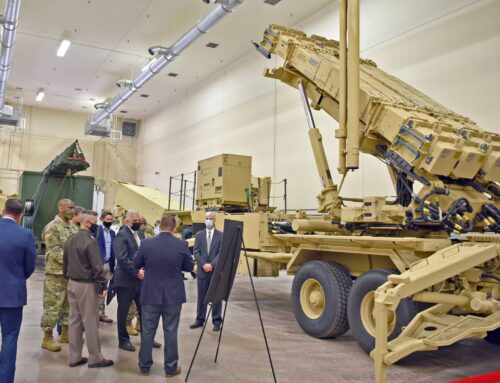
You can see the adherence to “we've always done it this way” in lots of places. But the recent “Taxibus” legislation pointed out one of the most egregious and wasteful ways: anti-competitive, protectionist language in the Pentagon portion of the bill.
The first example is the old requirement that all anchor and mooring chain up to four inches in diameter must be manufactured in the United States – from components that are “substantially” American sourced. The bill language goes on to helpfully define what the Congress means by “manufactured.” The list is long: “cutting, heat treating, quality control, testing of chain and welding (including the forging and shot blasting process.)” This requirement dates back at least 25 years (probably more) and was added at the insistence of a member of Congress who retired in 1995. Twenty years later, this anti-competitive language still appears in every Pentagon spending bill. Time to retire this provision.
Next, none of the funds made available to the Pentagon in the Taxibus may be used to purchase “carbon, alloy or armor steel plate … which were not melted and rolled in the United States or Canada,” because the members of Congress from the steel-producing states have a similar anti-competitive bent.
Congress is also set on protecting the ball bearing industry. No money from the act may be used “for the procurement of ball and roller bearings other than those produced by a domestic source and of domestic origin.”
And lest anyone think that it is just the Rust Belt materials and components that are being protected, in fact a much newer industry feels the need for protection as well. “None of the funds in this Act may be used to purchase any supercomputer which is not manufactured in the United States” proves that anti-competitive practices are taking hold in newer industries as well.
U.S. flags may not be purchased with any of the funds in the Taxibus unless they are “treated as covered items under section 2533a(b) of title 10, United States Code.” For the happily uninitiated, that particular section of the code is also called the Berry Amendment. The Berry Amendment was passed by Congress back in 1941 and originally applied to clothing and textiles to protect the domestic manufacturing capabilities of the textile industry during World War II. Over the years these “protections” have crept to include food, tents, tarpaulins, specialty metals and hand tools.
If there is national security rationale behind each “buy U.S.” provision, let's hear and debate it. And if U.S. manufacturers produce the best value in these goods, then by all means let's keep buying them. But defense spending is not a jobs program. With Congress insisting on the Pentagon getting every billion dollars possible, and the Pentagon crying wolf at every hint of a potential sequester, I suggest that it's time for Congress to remove these protectionist provisions and allow the Pentagon to purchase all materials from the lowest cost, best-value bidder. It's time for taxpayers to stand up for this common sense solution.











Get Social